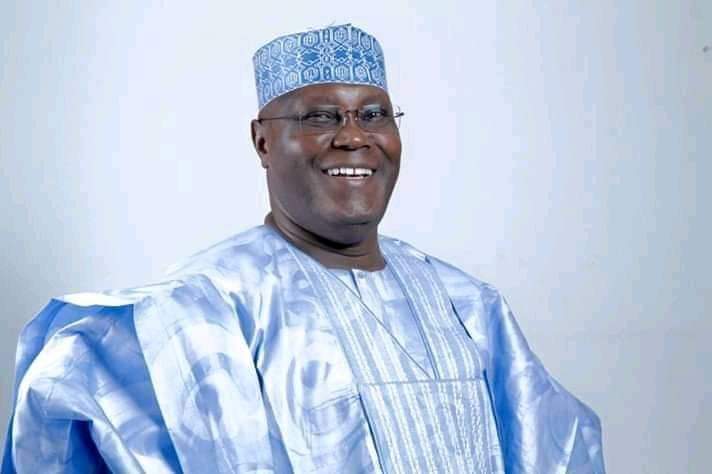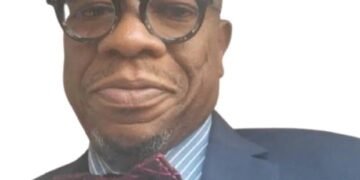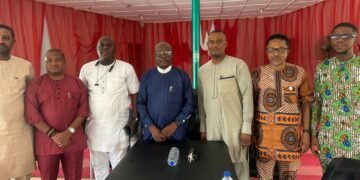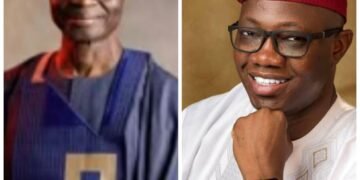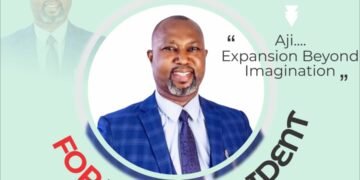Being an Address Delivered by His Excellency, Atiku Abubakar, Vice President of Nigeria 1999-2007 at the Arewa House, Kaduna on Saturday, 15th September 2022.
I thank the Arewa House for giving me this platform to speak to such a distinguished audience. I particularly want to thank all those who are present here today. Your love for Northern Nigeria is evident in that you have left your regular pursuits to be here to interact with us on issues that are germane to the progress of the region and, indeed, to the entire nation. Your presence inspires me (look up to the audience as you say this).
I am immensely grateful to the management of the Arewa House for providing a platform to outline the contours of my Development Agenda for our great nation. As I aspire to govern Nigeria, I find it necessary to unveil a policy document which encapsulates my vision for a united, prosperous society in which all citizens can realize their full potentials in a secure and decent environment. It sets out my policy priorities and my strategies for dealing with Nigeria’s complex challenges.
It is my hope that all those who aspire to govern Nigeria will be given the same platform to unveil their policy priorities and programmes. As we go to the polls in February 2023, there can be no better opportunity for the public to interrogate our ideas and strategies to deal with a plethora of local and national issues from the mundane to the most complex- particularly those issues that have important weight on the future of northern Nigeria.

I hereby present myself for interrogation.
However, I would like to caution that Northern Nigeria’s current social and economic challenges call for sober reflection, not partisan politicking. Irrespective of our political differences it should be our collective desire to see Northern Nigeria fulfill her potentials in the not-so-distant future. We must build consensus on one goal: Northern Nigeria must have its prosperity restored. It must re-emerge as a vibrant, prosperous, and self-reliant economy, operating in a peaceful, secure, and disciplined environment. Anything other than this goal cannot be an option.
This way, we share the dream of our leader and foremost nationalist, Sir Ahmadu Bello, Sardauna of Sokoto and Premier of the Northern Region. In announcing his Six-Year Development Plan for the region, he noted the need for Northern Nigeria to ‘catch up quickly with even the most economically and socially developed countries in Africa’. He had a vision to transform the region into the largest economy and the hub of investment & commercial activity in the Western Sudan; a region whose development would be anchored on its resources and the resourcefulness of its people. He enjoined, on several occasions, our businessmen to embrace modern industrial pursuits and revive that spirit of adventurous entrepreneurship which made medieval, pre-colonial Northern Nigeria great. He envisioned a Northern Nigeria that would attract investors, merchants, and scholars from all corners of the globe.
Northern Nigeria can realise beyond the dreams of its founding father. It requires strong commitment, initiatives, and a discernable shift from the mistakes of the past, to lift Northern Nigeria from the abyss to the top of a honey-coated mountain. It requires that we articulate and implement a transformation agenda with specific policies and programmes to address the challenges of underdevelopment.
So, what is Atiku Abubakar’s Development Agenda for Nigeria?
My Development Agenda seeks the political and economic transformation of Nigeria into a united, secure, and prosperous country in which all citizens can live a happy, healthy, and productive life. Economic prosperity is an integral part of this Agenda that has five elements: to restore Nigeria’s UNITY, strengthen NATIONAL SECURITY, Build a dynamic ECONOMY for PROSPERITY, improve EDUCATION DELIVERY AND RE-STRUCTURE the polity. Indeed, economic prosperity is the thread that runs through the other critical elements of the agenda.
All five elements of our development agenda are closely linked and influence one another in a dynamic manner: the dream of building a prosperous economy will remain a mirage without unity, peace, and security. Indeed, security is key to creating and sustaining an enabling environment for economic growth; creating economic opportunities for Nigerians will represent significant implication for social cohesion, unity and national security; increased jobs and income opportunities will reduce the likelihood of our youth being involved in crime, violence and conflict motivated by manipulating religious or ethnic differences; finally, a sound education system is needed to provide the citizens with the appropriate skills and competencies to explore available economic opportunities and prosper.
So, you may quite rightly ask me: what will your 5-point development agenda do to support the north? As is often asked, what in it, is it for the north?
My 5-point development agenda is a national agenda but with local touch. It is drawn up after careful reflection on key historical and contemporary events which have helped in defining where we are today. My agenda identifies where we are today, envisions where we want to be as a nation and outlines how we will get there.
While the agenda is nationalist in outlook, it recognizes the desire of the federating units to chart a course of their social and economic development but within a national framework. It does also recognise that the federating units’ development prospects depend largely on the political and economic dynamics of the Nigerian economy. At all times, a strong and healthy Nigerian economy with a stable macroeconomic environment will be a pertinent factor in their development.
Above all, the implementation of the Agenda will require collaborative engagements with the states and local governments and across a broad range of private and public stakeholders and a range of state actors at both federal and states’ levels.
I shall outline below the areas of convergence between the 5-point development agenda for Nigeria and the development aspirations of northern Nigeria.
Growing the Economy bigger and faster
The policy priority of the development agenda is to double the size of the Nigerian economy and achieve a GDP of approximately US$900 billion by 2030. This would raise Nigeria’s GDP per capita from the current levels of approximately US$2,000 to US$5,000, with additional significant impact on jobs and poverty. Although current growth projections are significantly lower, Nigeria has the potential to achieve this and become one of top 15 global economies.
We anticipate this momentous growth from our policies that seek to revitalize agriculture, solid minerals, manufacturing and MSMEs. As you would note, all four sectors, especially agriculture and MSMEs are the backbone of the northern economy. The Solid Minerals Sector has the potential of becoming northern Nigeria’s cash cow.
To restore its prosperity, the North must grow its economy. Over the years, the region has suffered de-industrialization and long-term social and economic decline. Several years of inadequate protection have robbed agriculture of its capacity to support a modern, fast-growing economy. The combined GDP of the 19 northern states comes up to about US$108 billion. On per capita basis, this is less than US$.1,000. On the other hand, Lagos State with a population of approximately 15 million people (that is 12.5% of Northern Nigeria’s population) has an estimated GDP of US$46billion. Not only is the northern economy small but is also structurally defective……The economy must grow for economic opportunities to abound.
Spending Big on Infrastructure-
The supply of efficient infrastructure, including roads and rail transportation, communication, and adequate power is extremely important for the economy to grow and create jobs. To build the economy of our dream, we must increase the stock and improve the quality of our infrastructure. Inadequate infrastructure has been identified as the most problematic factor for doing business in Nigeria.
In terms of actual spending, Nigeria currently spends less than 1% of its annual GDP on infrastructure as against the required levels of between 3% to 5% of annual GDP. This shortfall has created a deficit, estimated at US$3trillion over the next 30 years. The public sector does not have the resources or expertise to deliver. While our infrastructure financing requirement is approximately US$100 billion per annum, Nigeria’s annual budget is only approximately US$30 billion.
We shall incentivize, with regulation and tax incentives, a consortium of private sector institutions both local and foreign to establish an Infrastructure Debt Fund [IDF]. The IDF will primarily mobilize domestic and international private resources for the financing and delivery of large infrastructure projects across all the sectors of the economy. The IDF will have an initial investment capacity of approximately US$25 billion.
Which are the obvious (projects) candidates in Northern Nigeria? In the power sector, there are two potential candidates. The 3,000 MW Mambilla Hydroelectric Power Project is first on my list. As you may be aware, this project has been planned for over 40 years. All attempts to construct the power station up to now have been unsuccessful for some inexplicable reasons which I do not wish to go into today. For us, delivering this project is non-negotiable.
The second candidate is a gigantic Solar Project in Northwest geo-political zone. Northern Nigeria needs more electricity both to drive industry and to ensure adequate supplies to its growing urban and rural populations. The North, fortunately, has an interesting and quite strategic location in electricity generation from renewable sources. Many of our states are in the highest solar irradiation zone of Nigeria and would thus be an ideal location to serve as a hub for both production of required equipment and generation of electricity for use by local SME’s and micro enterprises who struggle to operate without decent supplies of electricity.
Other than solar energy, the region may have potential to produce biofuels as part of a rural electrification programme. In many parts of the north, Jatropha is already being planted as part of the anti-desertification programme. In neighboring Mali, Jatropha is already being used by small remote rural communities to produce fuel oil for cooking and electricity for lighting. A similar pilot could be envisaged in many parts of the North.
An advantage of Jatropha is that is grows in extremely inhospitable terrain that would rarely be considered for other uses.
Still on infrastructure, our Development Agenda is explicit on the following
Develop and rehabilitate the connecting road networks across the geo-political zones. Bulk of the transport activity is along three corridors, and traffic volumes are expected to double within the next 20 years: Lagos to Kano (Western Corridor); Port Harcourt to Kaduna (Eastern corridor) and Lagos to Cross River (West – East Corridor). Thus, the North features in two of the three corridors.
Encourage transportation development around the nation’s agricultural and industrial clusters; in particular, enhance linkages to agricultural zones and develop agricultural collection and distribution hubs (Jebba Lafia; Makurdi, Lokoja, Pategi/Baro, Shendam, Jalingo) in partnership with the states.
Rehabilitate the connecting rail networks across the geo-political zones: The new Kaduna-Kano rial; The rehabilitation of the Lagos-Kano and PH-Maiduguri rail lines.
Focusing on Irrigated Agriculture to improve productivity and ensure food security
The most prominent feature of the Northern economy is the dominance of rain-fed, subsistence agriculture and other informal sector activities. According to official estimates, the agricultural sector contributes the bulk of the region’s output and engages directly and indirectly more than 70% of the population.
A slow-growing, low productivity and subsistence agricultural sector operating side-by-side an under-performing manufacturing sector and a low-productivity, largely informal MSMEs sector, cannot be an option for Nigeria. If we are to grow into a strong and resilient economy, we must re-structure, diversify and strengthen the productive base of the economy. There is no better time for a re-structured and diversified economy than now.
We shall prioritize agricultural development with a special focus on irrigated agriculture. As you may be aware, Nigeria has immediate potential to irrigate more than 3 million hectares (Ha) to support agricultural production. Unfortunately, today less than 100,000 Ha representing less than 3 percent of the potential are under irrigation.
We shall elevate irrigation to a top policy priority and long-term investment priority and promote all year-round food production through expansion of irrigation facilities. Expanding our irrigation systems can improve agricultural productivity and extend growing seasons throughout the year – which has its socio-economic benefits to more than 50 million inhabitants around the Sokoto-Rima, Hadejia-Jama’are, Upper-Niger, Upper-Benue and Chad River Basins.
To ensure that smallholder farmers derive maximum benefits from the revitalization of the River Basin Development Areas, we shall build their capacity, enhance their access to finance and to locally adapted irrigation technologies.
Paradoxically, increased agricultural output could generate additional problems. Nigeria lacks adequate capacity to store food across seasons. It is estimated that the few silos and sundry warehouses in the country, with an estimated storage capacity of about 1.4 million tons can only store 5% of the annual grain produce, leaving 95% to immediate consumption or waste. The estimated average post-harvest food losses represent about 40% of the food produced in Nigeria.
Our Development Agenda envisages this and outlines our commitment to facilitate investment to shore up our capacity to store food across seasons in order to reduce post-harvest losses and improve food security.
We shall, in addition, encourage investment in agro-processing clusters by offering concessional financing, tax breaks and seed funds for upgrades or construction of access roads, embedded power plants and water/waste management systems. This will provide a significant boost to northern Nigeria’s light manufacturing and processing facilities.
Stimulating MSMEs development to create jobs, improve incomes and create prosperity.
The MSMEs sector will be an important cornerstone of our national development. Nigeria has a vibrant informal sector with slightly more than 40 million MSMEs employing 60 million people or 84% of the labour force. The sector, therefore, holds the key to sustainably resolving the challenges with job creation in Nigeria, as is the case in countries with low levels of unemployment. MSMEs contribute approximately 50% to (nominal) GDP and 7.72% of total non-oil exports. These MSMEs are evenly spread across the nation with nearly 55% located in the northern region.
Of the key issues affecting the performance of MSMEs in Nigeria, the shortage of finance occupies a central position. Nearly 80% of MSMEs are either not served or under-served by the commercial banks. The commercial banks, which remain the biggest source of funds to MSMEs, often shy away because of the perceived risks and uncertainties.
Consequently, I will create an Economic Stimulus Fund with an initial investment capacity of approximately US$10 billion to prioritize support to MSMEs across all the economic sectors, as they offer the greatest opportunities for achieving inclusive growth.
Creating jobs for all unemployed and especially under-privileged youth
Nigeria’s high levels of unemployment and under-employment pose serious development challenges. First, unemployment represents a wasted capacity from unrealized human resources and considerable economic loss. Second, in the urban centres across the country, the increasingly large pool of unemployed, underemployed, and frustrated young people is at risk of becoming embroiled in various forms of violence and misconduct.
Creating jobs and economic opportunities for these people will be vital both for reducing the ease of recruitment for violent groups and reducing underlying grievances that feed conflicts.
Our Development Agenda includes the implementation of a robust job creation and entrepreneurship development programmes that will target the youth. It is designed to target specific population groups i.e. economically marginalized demographics, which are not served by the typical market systems. In the northern states this will include the almajirai and other under-privileged youth who have had no opportunity to acquire western-style education.
Our job creation programme shall feature unique approaches to skills training. It will be a dual system focusing on both the informal Apprenticeship System and the formal training system through ‘one-stop-shop’ styled Community Skills Development Centres (COSDECs) with a Work Experience Learning component. In both systems, training will be based on the National Occupational Standards of the National Skills Qualification Framework (NSQF), and assessment of the trainees will be competency – based.
The programme will seek to create up to 3 million direct employment opportunities for economically marginalized young people every year. This will contribute significantly to our goal of lifting millions of Nigerians out of poverty. It will also represent significant implication for social cohesion and national security.
Leading the fight against poverty, hunger
Nigeria does not fare well on measures of poverty. Despite its vast resources, our country is rated as one of the poorest countries in the world with the highest levels of inequity among its people. According to the most recent statistics, more than 90 million Nigerians live at or below the poverty line – people who spend the equivalent of less than US$1.90 per day. More than 100 million Nigerians are considered multidimensionally poor. These are not only cash poor but have limited access to the basic needs of life including water, sanitation, electricity, and decent housing.
The poverty profile of the region has worsened over the years. Today, poverty is more pervasive in the northern part of our country than in the South. 15 of the 17 states with above national average poverty headcount are in northern Nigeria. 72 percent of the extremely poor live in the North, while 28% live in the Southern geo-political zones. At the state level, the poverty headcount rate ranges from 4.5 percent of the population (in Lagos) to 87.7 % (in Sokoto).
We must act fast and decisively to tackle the poverty challenge. It is projected that by 2030, on current policies and in the absence of fundamental reform, Nigeria’s population will rise to 258 million, and the extremely poor will more than double. The potential consequences are urban violence, political instability, and deep-seated crises.
Poverty reduction shall be the centrepiece of our economic development agenda and economic performance shall be measured by the number of jobs created and the number of people lifted out of poverty.
Our poverty reduction strategy will NOT BE the business-as-usual type BUT will include the following:
Enhancing micro enterprises’ access to credit. It is expected that a minimum of 2 million micro-enterprises will be impacted annually.
Special attention shall be paid to non-farm micro-enterprises in the rural communities as part of a broader strategy for livelihood expansion in agriculture.
Instituting microcredit schemes for home-based income-generating activities directed to poor women who are generally constrained by family responsibilities and social barriers from entering the labour market as wageworkers. (Target 2 million home-based poor women annually).
Increase investment in basic skills and vocational training for marginalized and vulnerable populations. An estimated 1,000,000 youths shall benefit annually from our apprenticeship scheme in the informal sector.
Provision of affordable quality education from primary up to the secondary level. This is strategic because of the nexus between education and poverty. The majority of the poor in northern Nigeria are educated at or below the primary school level.
The provision of affordable and quality healthcare facilities is likely to help reduce the health-related vulnerabilities of the poor. Our strategy will include the promotion of innovative schemes –such as the mobile healthcare delivery scheme (like the Indian and Australian Bush Doctors schemes).
re-structuring the fiscal systems for liquidity and sustainability
Nigeria’s fiscal regime is precarious and disruptive of budgets and development plans. A tax revenue/GDP ratio of 7-8% which currently obtains, is unacceptable.
The sub-national governments have even more precarious fiscal systems. The dependence on FAAC allocations is almost total for many state governments. The internally generated revenues (IGR) for 36 states and FCT Abuja is barely 1% of their nominal GDP and could hardly finance more than 12% of their budget.
Northern States do not fare well in domestic resource mobilization. In 2019, IGR collected by the 36 states and FCT Abuja came up to about N1.26 trillion. Lagos alone was responsible for about 35% of the total collection. On the other hand, the 19 northern states were able to generate only 50% of the Lagos collections! IGR per capita ranges from about N5,500 in Kaduna to less than N1,000 in Katsina. Many states, with narrow revenue base and limited capacity to borrow, find it hard to pay salaries unless they are bailed out by the federal government. Northern Nigeria’s march to greatness cannot be guaranteed without a steady flow of financial resources.
Therefore, the tasks before us are, first, to improve liquidity and second, to manage it responsibly and judiciously.
We will support the states to build a fiscal regime that is stable and predictable and that can substantially narrow the gap between the local revenue yield and local expenditure. We will also provide support in building sound economic management system, that is efficient, transparent etc.
There is no alternative to a policy which promotes the growth and diversification of the states. How much revenue they generate locally from taxes and fees depends on the size and structure of their economies. The bigger and more diversified the better. The federal government will create a business-friendly macro-economic environment, through the pursuit of appropriate monetary and exchange rate policies, to leverage private sector investments especially in agriculture to promote economic diversification. Indeed, achieving diversification is central to our economic development strategy.
We will assist the sub-national economies to reform their economic management institutions, including the revenue generating agencies which are seen by many as failed and ineffectually managed institutions. These institutions need to be reformed and strengthened to make them more innovative and efficient in delivery of service. The reformed agencies will be expected to improve tax-payer compliance, develop potentials of non-tax revenue sources, and block all leakages associated with tax administration.
I suggest the introduction of matching grants to states, that have succeeded in increasing their internally generated revenue.
My idea is for the introduction of Matching Grants to be taken from the revenue accruable to the Federal Government for the purpose of matching the Internally Generated Revenue of each state in order to encourage states to become self-reliant. If I have my way, the Federal Government will match state’s IGR up to $250 million per state.
On their part, the States must double their efforts in rebuilding the fiscal-social contract, by enhancing service delivery in key areas such as health, education, water supply and infrastructural development. Only this would change the predominant perception that government revenues are diverted to the private bank accounts of politicians and their cronies.
The states must endeavour to improve spending efficiency and block leakages drastically. My pledge is that I will lead by example. At the Federal level, this will include measures to reduce the share of recurrent revenue in the budget from an average of 75% to 35% by 2030. It will also include a review of government spending on PMS subsidy to free up fiscal resources for critical investments in education, health, water supply etc.
I will encourage the states to learn to finance their capital projects through strategic partnerships with Private Sector.
They should learn to utilize the opportunities in the domestic capital market by issuing bonds to finance their hugely capital intensive & services-oriented projects- power and water works, industrial and housing estates, markets etc. Many of these are income-yielding projects and will in the long term pay for themselves.
Finally, I will urge them to consider the privatization of all those state government owned public enterprises that gulp huge sums by way of recurrent expenditure yet give little returns by way of return on investment. This way state governments can free more of their revenue from recurrent and devote it to capital expenditure.
Re-positioning and strengthening the education system to cater for the poor and citizens with special needs
The public education system is ill-equipped and has consistently underperformed, keeping millions of our children out of school and producing graduates with skills and competencies which are not aligned with the needs of our communities and our industries. It is estimated that Nigeria has more than 18.5 million children that are out of school, which accounts for 47.3% of the global out-of-school population- being the highest in the world (UNICEF, 2022). These low participation rates perpetuate high illiteracy in Nigeria, which is accentuated along regional lines, with even lower participation in the impoverished rural parts of the country.
We shall improve and strengthen the education system to equip its recipients with the appropriate education and skills required to be competitive in the new global order which is driven by innovation, science, and technology and to lead healthy, productive, and meaningful lives.
We shall promote an all-inclusive system, which will carry along our citizens with special needs: the almajirai, the disadvantaged, the gifted and the vulnerable by ensuring that the rights of the poor including persons living with any form of disabilities are protected and existing laws are implemented. Our development agenda outlines our commitment to the following:
Improve the functionality and relevance of formal vocational and technical education. Vocational education curricula will be re-designed to respond to local skills demands by emphasizing the acquisition of knowledge, skills and competence that prepares the beneficiaries not only for higher education but also for earning a living.
Grants, bursaries, and scholarships will be used to improve equity and access for the economically disadvantaged groups, women, physically challenged, and persons with special needs
Increase investments in the sector and prioritize Technical and Vocational Education and Training (TVET) expansion for the training of low-level workforce, such as operatives, artisans, craftsmen and master craftsmen for commerce, industry, agriculture, and ancillary services. The absorptive capacity of the formal post-basic TVET and Vocational Centres will be increased to 1,000,000 by 2030 from the current total enrolment and completion of slightly more than 200,000.
Remodel selected vocational training institutions into one-stop-shops for the provision of vocational training, entrepreneurship, and life skills programmes.
Addressing challenges of Inter-regional disparities in development:
Inter-regional and inter-state disparities in income, education, health care and environmental quality are alarming. There are significant variations in the Human Development dimenstions between geo-political zones as well as between states and geo-political zones. These variations are indicative of the unevenness of economic and social development in the country. The North East geo-political zone has the lowest Human Development Index (0.332) and the highest Human Poverty Index (48.9)
These disparities limit the potential for growth and make the implementation of reform programs more difficult. On incomes, for example, Lagos state alone contributed nearly 30% of Nigeria’s estimated gross national income (GNI) in 2016, compared with the combined GNI of the 19 northern states at 26%. Yet, Lagos is only approximately 12.5% of the population of northern Nigeria. The Northwest and Northeast geo-political zones are the poorest with the intensity of Poverty at 45% and 44% respectively compared with 38% for the Southeast and Southwest zones.
Regional disparity in education is most prominent: northern states have much poorer education outcomes than their southern Nigeria counterparts. While Lagos for example, has an Education Index above one, Yobe has 0.33.
We will ensure spatially balanced investments, through a carefully designed incentive regime, to provide more opportunities in the poorer and less endowed federating units.
Even with this policy, the Federal Government will continue to offer support (in the form of intervention programmes) for states that rank below the average development index, until such a time as they are able to become self-sufficient and sustaining.
Addressing challenges of instability and insecurity
Worsening insecurity poses a potent threat to Nigeria’s fragile economy and undermines democratic consolidation. Nigeria has never been so overwhelmed by insecurity and this is in all parts of the country. We have reached a point where the functions of the state have been usurped by separatists, bandits, insurgents, and terrorists. Sadly, the northern region is extremely burdened: today, innocent people suffer from banditry, insurgency, terrorist attacks, kidnappings for ransom, armed robberies, and everyday acts of thuggery.
The escalation of terrorism, banditry and kidnapping for ransom has led to the closure of hundreds of schools and businesses and to the loss of hundreds of thousands of innocent lives.
We have a good grasp of the root causes of northern Nigeria’s security challenges. Nigerians have been witnessing a deterioration in all aspects of basic human development as our country suffers an avoidable economic decline. Despite its vast resources, Nigeria is today one of the poorest countries in the world with the highest levels of inequity among its people. Widespread feelings of marginalization and neglect have led an increasing number of Nigerians to openly challenge their allegiance to the country’s corporate existence through violent agitations, insurgency, and misguided demands for ethno-regional autonomy.
Our Development Agenda has details of the measures we shall put in place to address our security challenges.
We shall emphasize the following
Promotion of economic policies and programs that are inclusive- that is, enhancing all citizens’ access to economic opportunities and social amenities including jobs, healthcare, education, water and sanitation, electricity, and housing.
Implementing measures that provide comfort and security to the poor and vulnerable and enhance their capability to earn a living and live a productive life.
Achieving and maintaining a balanced socio-economic development among regions, sectors, and classes of people, whether in the rural or urban areas.
Promoting the politics of inclusiveness in governance, to restore citizens’ confidence in Nigeria as one indivisible country that will protect and secure socio-economic benefits for all.
Strengthening the relevant institutions (the Military, Police etc.) that will enable the Government to put in place appropriate measures that will guarantee the protection of lives and properties as a necessary foundation for development.
Conclusion
I am an optimist. I believe that the north shall rise again with its people happier, healthier, and wealthier. The region possesses all it takes to engineer a takeoff to a higher level of development: it has a huge population of 120 million people which would provide enormous market opportunities and serve as a potential reservoir of skills; it has a large agricultural sector which could provide tremendous opportunities for primary processing and for local resource-based industrialization; and it has tons of untapped mineral- resource deposits. Its businessmen have a long history of contact with strategic markets in West, Central and Northern Africa, the Arabian Peninsula, Europe, and the Far East- even before the incorporation of Nigeria into the European system of commerce.
That is the northern Nigeria Paradox: potentially great, but with all the features of an under-developed state. We must work together to unravel this paradox and endeavor to end it.
There are two critical success factors. First, the north needs to elect leaders who have a vision and a positive notion of development; leaders who understand the complexities of the development process and who, therefore, are willing to articulate & implement a transformation agenda with specific policies and programmes to address these challenges of underdevelopment.
Availability of resources matters little without a committed, forthright, and visionary leadership, with the necessary zeal to effectively harness and efficiently utilize such resources.
The second critical success factor is hinged on our ability to forge a united front in fighting the forces of disunity and under-development. Nigeria’s unity is being threatened by internal conflicts, insurgency, and religious intolerance. We must restore northern Nigeria’s unity through tolerance, social justice as well as cooperation and consensus amongst our heterogeneous people. Nigeria needs unity that is transparently and collectively negotiated and agreed upon. This is the only way to douse the divisive tension and neutralize the negative elements of identity politics, which create a morbid environment of “we” against “them” with its attendant impetus for a desperate struggle to control leadership.
Let me on this note end with two quotes from the Sardauna of Sokoto
‘Tribalism is a destructive force…the only solution to our problem which has a fair chance of enduring is one which gives all Nigerians irrespective of tribe or region, a reasonable opportunity to serve the Federation and derive from it just and fair rewards…’
On religion, he had this to say: ‘I have stressed before that the differences of religion should not bar us from working together for the good of our people…. Most sincerely do I assure that the most earnest hope of my government is that contained in the beautiful thought and language of the Christmas message that there shall be “peace on earth and good will to all men”
Thank you.
AA


